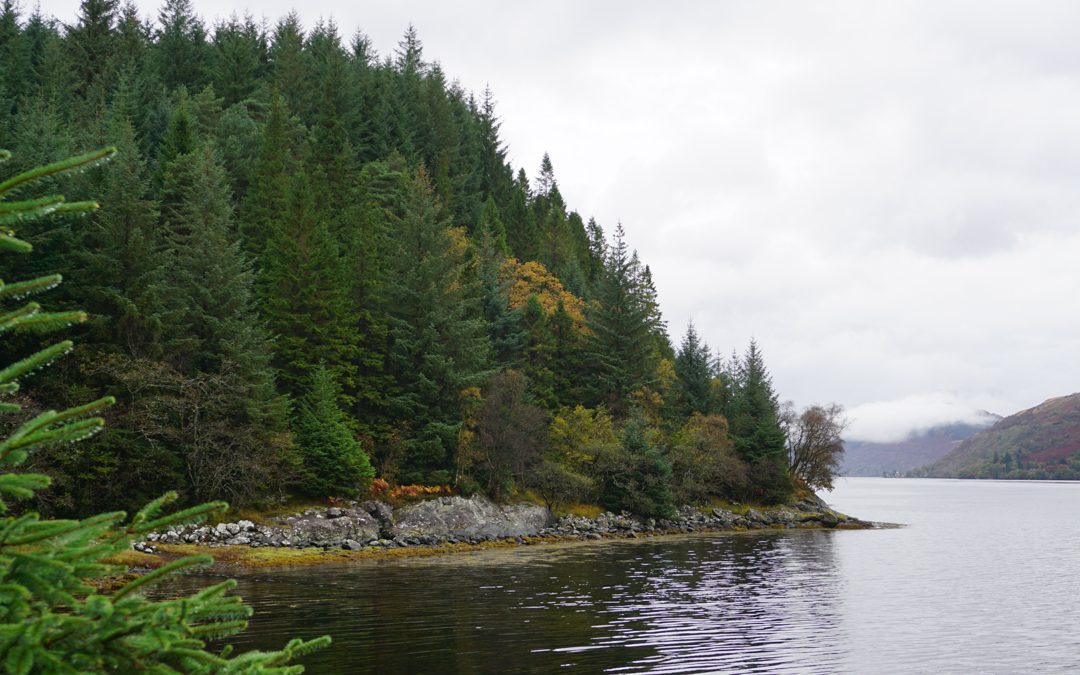PLANS for an innovative Scottish fish farm have taken a further step forward following the approval of an essential permit.
The farm, named Loch Long Salmon, is based in Loch Long near Arrochar, Argyll and Bute, and will be Scotland’s first semi-closed containment marine finfish farm
The Scottish Environment Protection Agency (SEPA) granted the farm with an environmental permit known as a Controlled Activities Regulations (CAR) licence.
The permit will allow Loch Long Salmon to deploy 5 enclosures of 140m circumference, with a biomass limit of 3,452 tonnes.

The farm has welcomed SEPA’s decision, which has been the latest in a series of regulatory approvals required before the farm can be deployed.
The approval comes after a two-year programme of surveys and modelling to demonstrate that the farm will not compromise the environmental quality of the Loch.
Loch Long Salmon has submitted a planning application to Loch Lomond & The Trossachs National Park Authority for determination in early 2022, which would allow construction on the site to begin by the end of the year.
Uniquely, the company has not requested permission to use chemicals to treat sea lice.
The semi-closed farming system means lice cannot enter the pens, protecting the farmed fish as well as the wild fish in the Loch.
This distinguishes the farm from conventional open-net fish farms which must treat for the parasites with chemicals which are then discharged into the water.
This set up has been approved by SEPA because over 85% of waste and uneaten food is collected internally at the bottom of the enclosure to be brought ashore and treated.
This reduces the environmental impact of the site, protecting the seabed and surrounding marine environment.
Stewart Hawthorn, Director of Loch Long Salmon, said:
“We are delighted SEPA has granted the CAR licence for our Beinn Reithe site in Loch Long, particularly for their thorough but helpful approach which will help bring semi-closed containment aquaculture to Scotland for the first time.”
“Semi-closed farming systems look much like conventional pens from above. But under the water they have an opaque, impermeable outer barrier that surrounds the fish net.”
“This farming system has been operating successfully in Norway since 2014 and is now being deployed in the Faroes and Canada, but this is the first time it will be used in Scotland.
“This exemplar project provides an opportunity to show closer to home what is possible and to secure the future of the salmon farming industry in Scotland.
“It will reduce environmental impacts while continuing to support vital jobs and economies in rural Scotland.”
SEPA’s vision is that the long-term success of the finfish aquaculture sector in Scotland will require the sector to become a world-leading innovator of ways to minimise the environmental footprint of food production and supply.
Jo Green, Acting Chief Executive of the Scottish Environment Protection Agency (SEPA) said:
“We want Scotland to be a world-leading innovator of ways to minimise the environmental footprint of food production and supply.
“SEPA aims to actively support innovation that drives environmental sustainability.
“Semi-closed containment systems, such as that proposed by Loch Long Salmon, have the potential to play a significant role in enhanced sustainability through reduced medicine use and discharge.
“We will continue to encourage and support businesses across the sector to introduce environmentally innovative approaches to fish production.”

